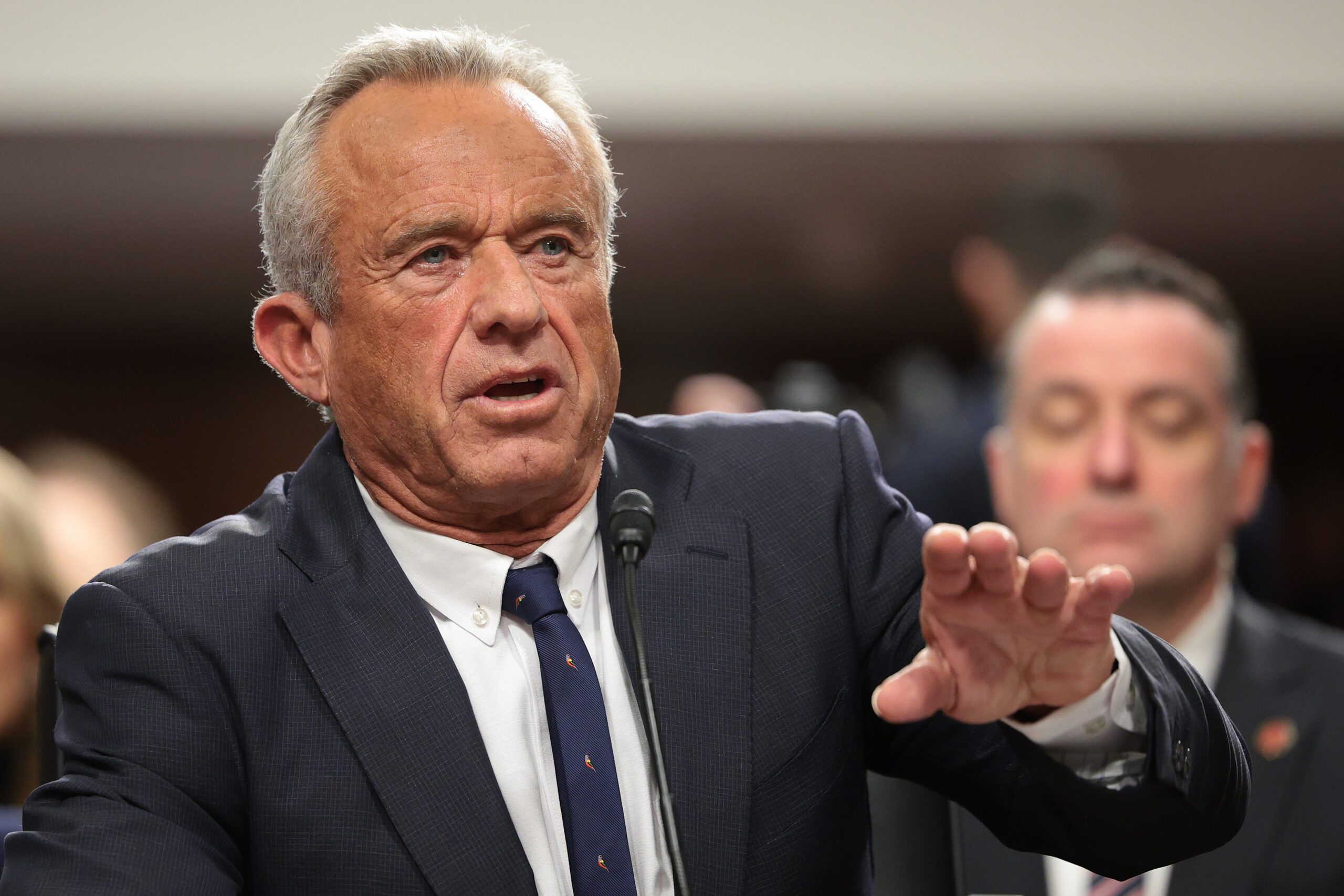This week many Americans have taken note of the beleaguered Kennedy's distinct voice. It's said to be caused by a neurological condition, experts explain.

“Why Does RFK Jr. Sound Like That?” How Robert F. Kennedy Jr.’s Rare Brain Disorder Affects His Voice

As the nation tuned in to Robert F. Kennedy Jr.’s confirmation hearing to lead the U.S. Department of Health and Human Services (HHS) this week, many Americans noted the sound of the 71-year-old’s voice, which might be described as raspy and unsteady. RFK, as the controversial politician is commonly known, has shared that he suffers from what Dr. Patricia Varacallo, DO confirms to be “a neurological disorder called spasmodic dysphonia.”
The Cleveland Clinic defines spasmodic dysphonia as “a rare speech disorder that affects your vocal cords, making your voice change and sound different. Your voice may break, sound tight and strained or very breathy.” The condition is said to affect the larynx, also called the voice box.
According to the National Institute on Deafness and Other Communication Disorders (NIDCD), spasmodic dysphonia is believed to be caused by abnormal function of the basal ganglia and cerebral cortex, parts of the brain that control muscle movement and compute sensory information. The Cleveland Clinic further explains: “Women and people assigned female at birth (AFAB) are more likely to have this condition than men and people assigned male at birth (AMAB). It can start at any age, but spasmodic dysphonia usually begins between ages 30 and 60.” The Clinic adds that spasmodic dysphonia is currently diagnosed in fewer than 500,000 Americans.
Though the exact cause of spasmodic dysphonia remains unclear, many researchers suggest that the condition can be triggered after a serious injury, infection, or major emotional disruption in the patient’s life. “For years people asked me if I had any trauma at that time,” Kennedy told The Los Angeles Times in 2024, adding that he first noticed his symptoms in the 1990s. “My life was a series of traumas… so there was nothing in particular that stood out.”
He also shared with the outlet that he feels “sorry for the people who have to listen” to him, noting that he “can’t stand” the sound of his voice. “But the injury is neurological, so actually the more I use the voice the stronger it tends to get,” he told The L.A. Times in a phone interview.
This is not the only neurological problem Kennedy has experienced. In 2010, doctors reportedly found a dead tapeworm in his brain that had caused severe mental fogginess and memory loss. The parasite “got into my brain and ate a portion of it and then died,” a May 2024 article in The New York Times quoted him saying during his 2012 deposition.
Kennedy has also claimed having been diagnosed with mercury poisoning, which can cause a range of symptoms including tremors, unsteady gait, double vision, memory loss, seizures, and more. “I have cognitive problems, clearly,” he said in that deposition.“I have short-term memory loss, and I have longer-term memory loss that affects me.”
However, Kennedy’s currently embattled campaign to become Secretary of the HHS—a role that oversees America’s health agencies including the Centers for Disease Control and Prevention (CDC), National Institutes of Health (NIH), Medicare, Medicaid, and others—have added to questions related to his personal health. Critics say that he has a long history of intentionally promoting misinformation, including the dangerous and scientifically unsound view that vaccinations cause autism. During the hearing, RFK sought to distance himself from past comments indicating that he is anti-vaccine and admitted in the hearing that he’d had his own children vaccinated. He was also incorrect about the number of American babies born on Medicaid (he estimated 30 million, when national health experts state just over one million) and how programs like Medicaid and Medicare are funded (which involve a combination of state and federal dollars, though he left out state funding).
Today, Kennedy is once again in the hot seat as he attempts to clinch his nomination in the second of two confirmation hearings. Outlets like the New York Times are fact-checking the proceedings in real time.
For daily wellness updates, subscribe to The Healthy by Reader’s Digest newsletter and follow The Healthy on Facebook and Instagram. Keep reading:




















